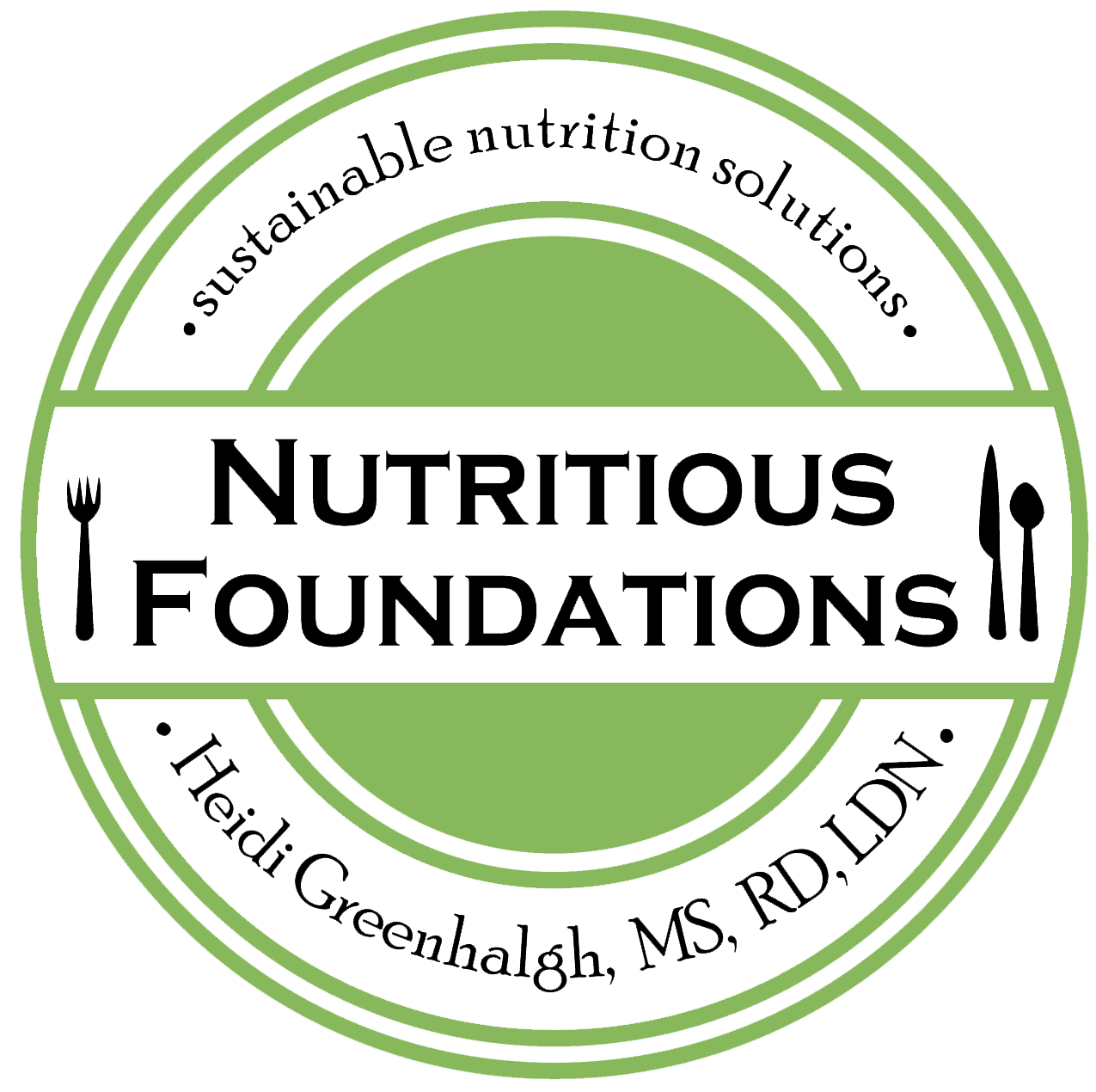Fill Up With Fiber
Fiber is a secret weapon when it comes to maintaining a healthy weight. Why? Because foods that are packed with fiber are generally low in calories and packed with nutrients. Fiber has a myriad of health benefits as well. Most people are familiar with the role that soluble fiber has in lowering LDL ("bad") cholesterol, thereby lowering your risk of cardiovascular disease, but because fiber plays a key role in weight control, it also lowers risk of many types of cancer and type 2 diabetes, both of which are linked to obesity. However, some of the coolest new research to come out about fiber is it's effect on the gut microbiome. In fact, a
recent study showed that increased fiber intake significantly altered the gut microbiota in a relatively short period of time!
With all of these fabulous fiber benefits, why are most of us eating so little of this key nutrient? An article by
Stanford: Lifestyle Medicine estimated that 95% of Americans are deficient in fiber and the reason for this is clear. Too much processed food. Processed foods are high in calories, sugar, sodium and fat. They are low in fiber, phytochemicals, antioxidants and nutrients, yet processed foods now make up 70% of the average American diet.
The real question is, how can I increase the amount of fiber in my diet? There are several superfood categories when it comes to increasing fiber. Fruits, vegetables, beans, and legumes. All of these can help you increase fiber in your diet easily. Shooting for a goal of 5+ fruits and veggies daily, plus 3 or more servings of beans and legumes weekly will help you reach your fiber goals.
For those of you who want to dive deeper, let's learn more about fiber!
Fiber defined:
Non-digestible (at least by humans) carbohydrates found in plants
Types of fiber:
Cellulose, hemicellulose, pectins, lignins, gums, beta-glucans, fructans and resistant starches plus psyllium
Parts of the cereal grain:
- Husk: removed and thrown away, aka chaff or hull
- Bran: contains the most fiber (95%)
- Endosperm: mostly starch, some fiber (think of a white rice kernel)
- Germ: rich in vitamins, minerals, essential fatty acids, some fiber
Recommended daily amount of fiber:
- 14 g/1,000 kcals OR
- 25 g based on a 2,000 kcal diet OR
- Men (up to age 50) 38 g; Men (50+ yrs old) 31 g OR
- Women (up to age 50) 25 g; Women (50+ yrs old) 21 g
Fiber can be divided into categories by property:
- Insoluble (does not dissolve in water, usually non-fermentable); bulks up stool, useful for constipation
- Soluble (dissolves in water; usually fermentable); forms a viscious gel that removes excess "bad" cholesterol, useful for both diarrhea and constipation
- Prebiotics (these are all your fermentable fibers, whether soluble or insoluble); positively impacts the gut microbiome
Best food sources of soluble fiber include:
- Legumes: Beans of all kinds, including kidney, black, pinto, white, lima, navy, chickpea; edamame; and peas
- Oats
- Tofu
- Avocado
- Brussels sprouts
- Sweet potatoes
- Broccoli
- Pumpkin
Best food sources of insoluble fiber include:
- Whole wheat products, like 100% wholewheat bread and pasta
- Oat bran and oatmeal
- Legumes: Beans of all kinds, including kidney, black, pinto, white, lima, navy, chickpea; edamame; and peas
- Berries: including blackberries, blueberries, raspberries, strawberries
- Whole grains, including quinoa, rye, barley, amaranth, brown rice
- Leafy greens, like kale and spinach
- Vegetables, like broccoli, okra, radishes
- Nuts, especially almonds and walnuts
- Fruits with edible skins, like pears and apples
- Avocados
- Sunflower, flax, and chia seeds
- Potatoes and sweet potatoes
- Popcorn
Best food sources of prebiotics from food include:
- Green bananas
- Oats
- Apples
- Avocado
- Garlic
- Dandelion Greens
- Onions
- Chicory root
- Jersusalem Artichokes
A few precautionary words when it comes to fiber.
- Don't forget that rapidly adding a lot of fiber into your diet can cause tummy troubles in the form of gas and bloating. Start gradually and build until you reach your goal.
- Many sources of fiber, especially the prebiotics, are high in FODMAPS. If you fall into this category, seek the advice of a registered dietitian (that's me!)
- If you have IBD (Inflammatory Bowel Disease) or are having a flare-up of diverticulitis or other type of bowel inflammation, you play by a different set of rules.
- Don't stress about the different types of fibers. As you can see, there is quite a bit of overlap, just eat more fruits/veggies/beans/legumes and change your health for the better!
Exercise is the best medicine
--Hippocrates
Nutritious Foundations















